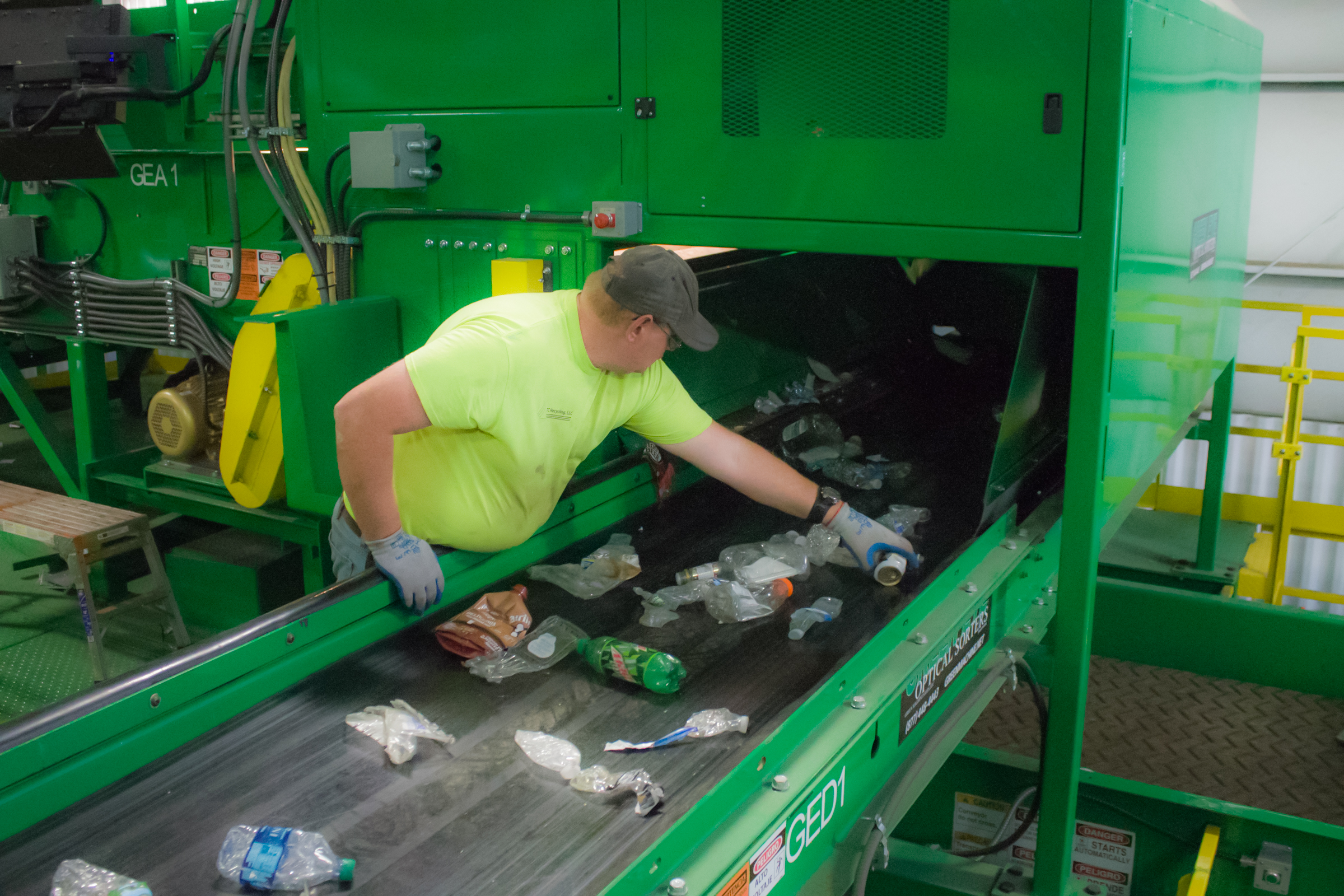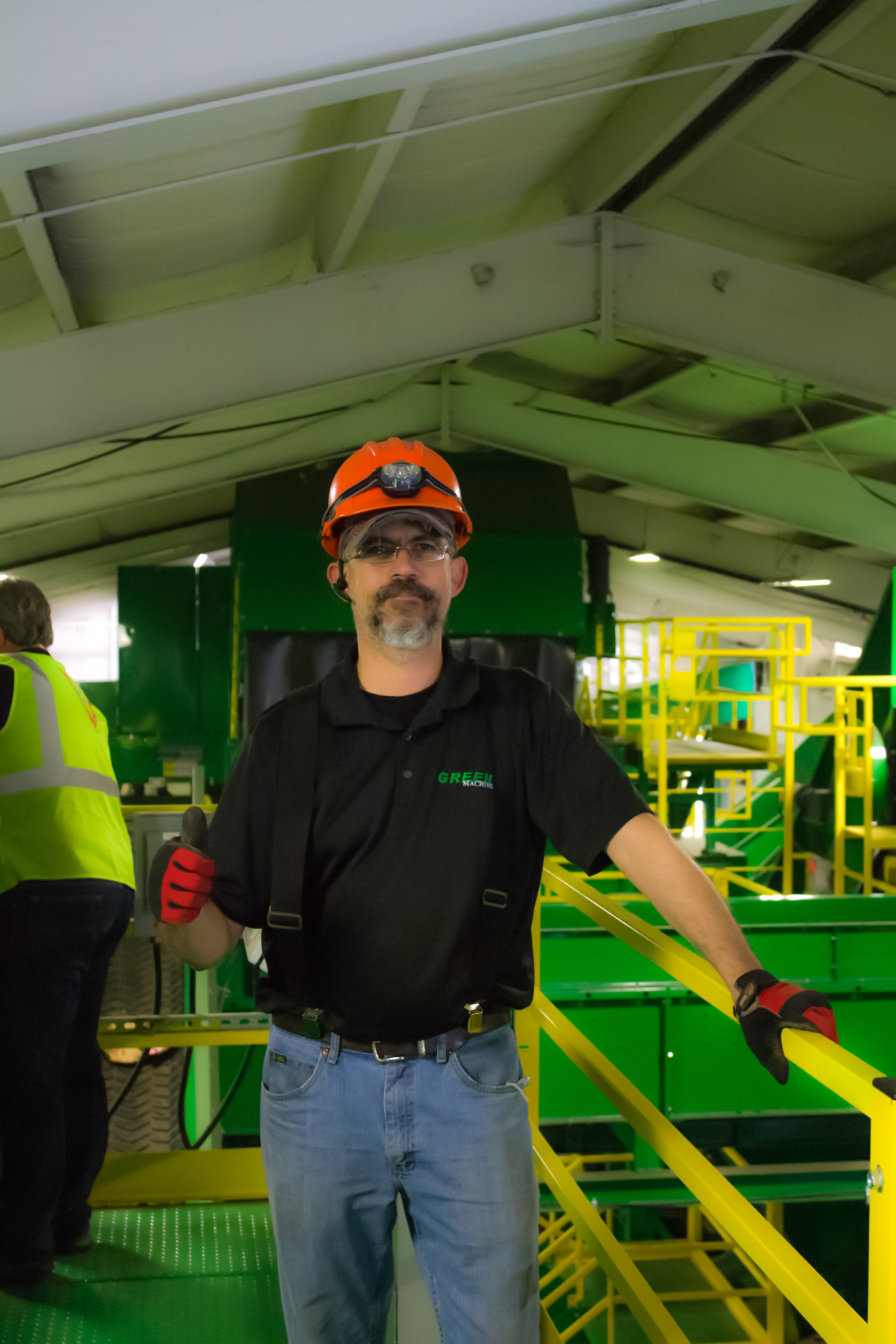Have you ever looked at something and thought, "I wonder if this is recyclable?" You look for a label, but you're still not sure. So you decide it's the right thing to put it in the recycling bin, just to be safe.
Although you have the best intentions, improper recycling (or "wishcycling") has consequences for the whole waste management system. We appreciate your desire to recycle - it's so important! - but here are the reasons why only 100% recyclable materials should go into the recycling bin.
-7.jpg) Decreased Efficiency
Decreased Efficiency
The first step of the recycling process is sorting. Because all of the Vogel companies provide single-stream recycling, all of the materials that come to TC Recycling are mixed together. As materials go down the line, our Green Machine equipment sorts material types using magnets, optical sorters, crushers, shakers, blowers and other methods.
This new equipment is able to process 600 tons of recyclable materials per week! But it's only designed to process recyclable materials - paper, cardboard, plastic, and metal. Everything else gets in the way of a smooth, efficient process.
Our employees still have to hand-pick the line for materials that are not recyclable. The more non-recyclable materials make it onto the line, the harder they have to work to spot things that are not recyclable. It also increases their exposure to materials that can be sharp or contaminated.
Damage to Equipment (and danger to employees)
Non-recyclable materials can cause the equipment to jam up or break down. Items such as plastic bags, hoses, wire hangers and string lights can work their way into the belts and joints of the machinery. Even things like small pieces of broken glass can cause danger as our employees have to hand-pick them.
On a much larger scale, we get things like golf bags, microwaves, flammable gas canisters, and furniture. These items could cause catastrophic damage to the equipment or cause a fire. Repairs can cost tens of thousands of dollars, or more. And every time we have to stop the equipment, it decreases the effectiveness of our processes and causes us to get backed up.
The Green Machine is equipped with safety features such as emergency stops to keep our employees safe. Of course, we don't want to expose our employees to any danger at all, and we appreciate your help with this mission.
 Contamination of Recyclable Materials
Contamination of Recyclable Materials
Food contamination is a major issue. Things like greasy pizza boxes and unwashed peanut butter jars can contaminate an entire load of recyclable material. Broken glass is also a problem, as it can contaminate other recyclable materials.
Contaminated recyclable material presents several problems. First, it can attract pests and create unsanitary conditions. Second, it causes the salability of processed recyclable loads to decrease. If an entire load of recyclable materials reaches the buyer but is contaminated by one thing, the entire shipment will be turned away!
The entire recycling industry is dealing with this right now, which is driving down the profitability of all of the work we do. At the end of the day, we have to pay our employees and manage our operating costs, so decreased profitability may end up resulting in increased costs for recycling services nationwide if we do not improve the quality of our recyclable materials.
Environmental Issues
Believe it or not, recycling the wrong materials can actually cause harm to the environment. First, non-recyclable materials have to get transferred from the recycling facility to the landfill. That's an extra trip that could have been avoided if the non-recyclable material had been put in the garbage to begin with.
But on an even larger scale, loads of recyclable materials often get shipped around the world to places like China and India. If they get turned away for contamination, the entire load has to come all the way back to the United States! That's a major world-wide transfer that wastes resources and causes pollution.
 What can you do to recycle correctly?
What can you do to recycle correctly?
- Know the rules for your recycling service (including which types/numbers of plastic are accepted). Our recycling requirements are available at https://www.ohiovalleywaste.com/recycling.
- Don't assume that just because something seems like cardboard, plastic or paper, that it's recyclable (paper coffee cups, for example, are not recyclable because of their lining).
- Empty, clean, and dry anything that came in contact with food.
- Don't bag it (as plastic bags can get caught in the machinery).
- Remove non-recyclable parts like lids, labels, wrappers, liners, inserts, packing material, etc.
- Reduce and reuse as much as possible! Trash and recycling should be your last resort.
We thank you for your cooperation with all recycling rules. Together, we can ensure that as much material as possible gets responsibly recycled!
For more information on the recycling process, visit TC Recycling's website.